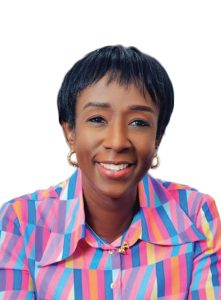IWD 2023: Interview Mrs Delese Mimi Darko
Mrs. Delese Mimi Darko was awarded an EDCTP Ethics and Regulatory activities grant for the BERC-Africa project, building and enhancing regulatory capacity in Ghana. With over 30 years of experience, Mrs. Darko rose through the ranks at the Food and Drugs Authority (FDA) Ghana to become the first female Chief Executive Officer in 2017. Mrs Darko was instrumental in designating the FDA as a Regional Center of Regulatory Excellence, and the establishment and implementation of the Food Safety Policy and Food Emergency Response Plan in Ghana. Under her leadership, the FDA has introduced many innovations including the Progressive Licensing Scheme, in collaboration with the Ghana Enterprise Agency (GEA). She currently chairs the Steering Committee of the WHO African Vaccines Regulatory Forum (AVAREF) and serves on several international committees including Global Advisory Committee on Vaccine Safety (GACVS), the West African Medicines Regulatory Harmonization Steering Committee.
For International Women’s Day 2023, we asked Mrs Delese Mimi Darko how she navigated the path towards leadership of key national and international institutions.
When did you decide to pursue a career in science and leadership?
My academics set me on a pathway for a career in science. After obtaining my A-Levels, it became apparent that my unique blend of disciplines – biology, chemistry, and mathematics would be suited to the study of pharmacy at that time and I have not looked back since. This decision itself was a paradox considering that I had to be compelled, almost threatened to take my medicines when I was unwell; and now there I was, training to become one who would be involved in all aspects of medicine delivery! And my chosen career path in the medicine’s regulation could not have been the perfect one for me where I could make the difference by assuring consumers can feel safe knowing that national medicine regulators ensure the quality, safety and efficacy of medical products on their markets.
In terms of leadership, I have been fortunate to be in the right place at the right time and I gave it my all. In the early stage of my career, I witnessed the evolution of the Pharmacy Board into two separate entities – the Pharmacy Council and the then Food and Drugs Board. The creation of the Food and Drugs Board in 1997 presented many opportunities to lead at various levels of the organisation.
Do you think women experience more challenges and how did you overcome them?
I think women face certain distinctive challenges at work ranging from lack of proper family support systems to the issue of the glass ceiling. You would notice that if a woman is assertive at work, she is sometimes considered she is bossy or tough in an almost negative way, whereas a man with the same disposition is considered decisive.
What has worked for me has been to recognise the role of perception and to harness this to my advantage and to the benefit of the institution I serve. For example, where women are underrepresented, people may underestimate our capabilities to succeed. I have found this to be an opportunity that we can use to our advantage; it can be a powerful motivator to succeed and presents opportunities for us to be strategic and to influence change differently.
How do you think (inter)national organisations may benefit from female leadership?
I think organisations may benefit from female leadership because women generally more altruistic and are therefore able to better consider other opinions and views. This makes us better team players and better leaders who, as a consequence, are able to take bold decisions based on wider consideration. We are natural leaders and nurturers and are not afraid to take decisions which are more humanitarian and based less on political or economic considerations. Women are also more organised and better organisers. We are better at multitasking which is a necessary requirement for any leader.

